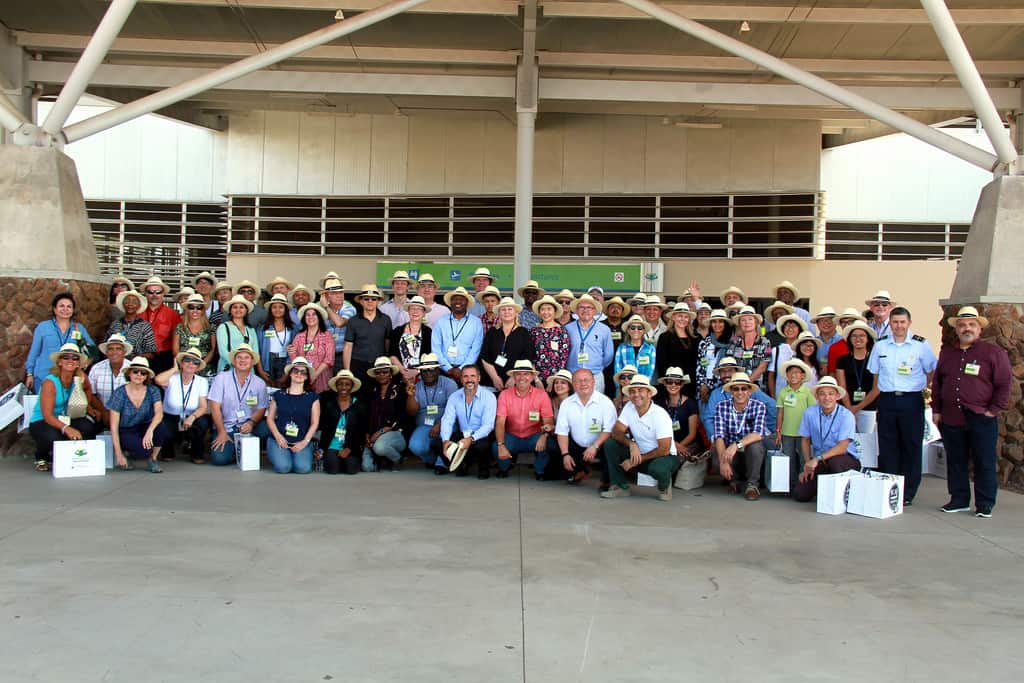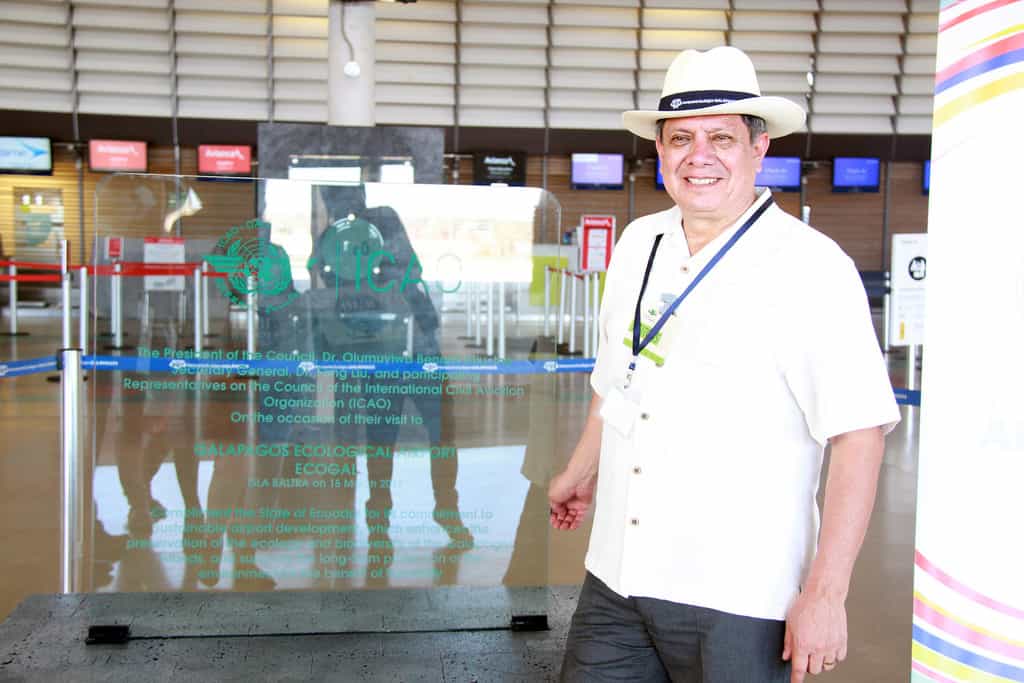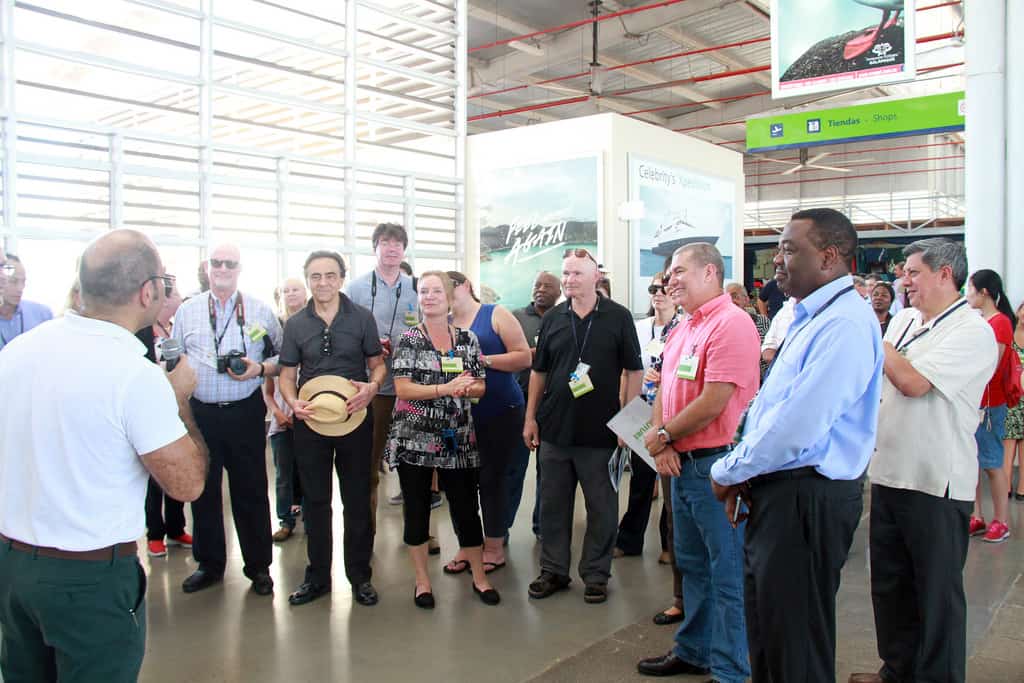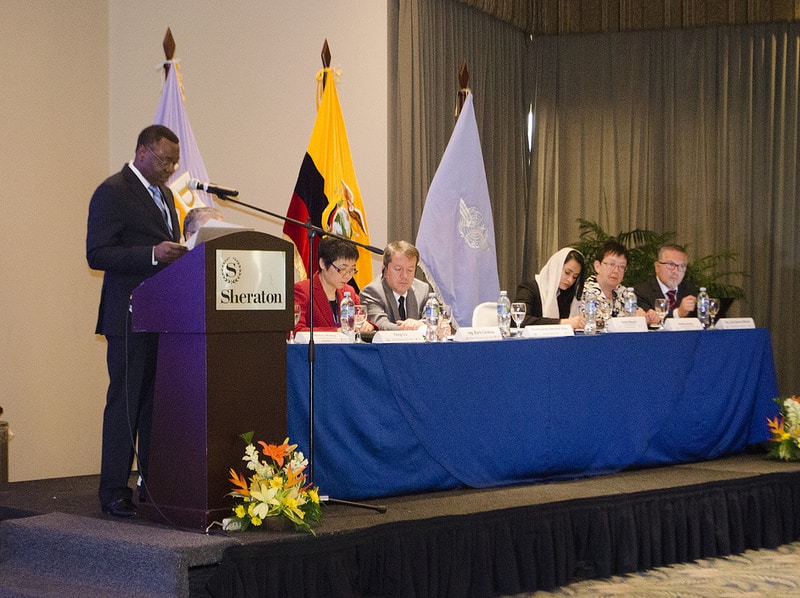Every year on April 22, people around the world come together to celebrate Earth Day and raise awareness about environmental protection.
Since the dawn of powered flight, the aviation community has been committed to reducing fuel usage and the consequential environmental impact. In the late 1960s, this expanded to the establishment of the first policies and standards related to aircraft noise, with other crucial areas such as air quality and climate change quickly following. ICAO has played a leading role throughout, but we have also undertaken this role by learning from the audacious initiatives of our member States and key stakeholders.
In short, by working with Member States and the aviation industry, we have taken important steps to ensure our industry does its part in making life more sustainable for the planet.
A shining example of these efforts was showcased earlier this year, when the Government of Ecuador invited Representatives of ICAO’s 36-State Governing Body, along with ICAO’s Secretary General Dr. Fang Liu and members of the ICAO Secretariat, to visit their country and to learn their strong legal and political commitment to environmental protection.

Mr. Ivan Fernando Arellano Lascano, Ecuador’s Representative on the ICAO Council, pointed to the visit as an opportunity for the highest authorities in aviation to undertake important political and technical discussions regarding the environment.

“The Council State Visit to Ecuador impressed upon ICAO’s leadership the importance of our positions on aviation environmental protection, not only in terms of objectives like carbon-neutral growth, but also in terms of the protection of the world’s geographic heritage. This latter priority even extends to areas which also happen to be the site of new airport infrastructure, as exemplified by our Ecogal facility”.
The visited included tours of the infrastructure that Ecuador is developing, including the remarkable Galapagos Ecological Airport, “Ecogal”, which is unique in the world for the measures it has implemented to preserve the islands’ ecosystems and biodiversity.

In addition to the state-of-the-art technologies and practices being implemented at the Galapagos Ecological Airport in the Islands, a fragile world heritage site with tremendous biodiversity, sustainability issues specific to each of Ecuador’s three distinct continental regions – coastal, Sierra, and rainforest – were presented.
 In Quito, Ecuador’s capital city, the construction of the new and high-altitude “Mariscal Sucre International Airport” presented not only technical challenges in terms of air navigation services and environmental impact, but also cultural heritage challenges when significant archaeological treasures were uncovered during its construction. Ecuador’s experience in appropriately managing these challenges will be invaluable to future international guidance regarding these situations. To give another example, at the “Jose Joaquin de Olmedo International Airport”, in Guayaquil, a facility which serves the country’s principle largest urban area and which has received numerous awards for its outstanding airport service quality, Ecuador highlighted its social inclusiveness by way of a programme that actively encourages the employment of disabled people at the airport through a specific recruitment initiative.
In Quito, Ecuador’s capital city, the construction of the new and high-altitude “Mariscal Sucre International Airport” presented not only technical challenges in terms of air navigation services and environmental impact, but also cultural heritage challenges when significant archaeological treasures were uncovered during its construction. Ecuador’s experience in appropriately managing these challenges will be invaluable to future international guidance regarding these situations. To give another example, at the “Jose Joaquin de Olmedo International Airport”, in Guayaquil, a facility which serves the country’s principle largest urban area and which has received numerous awards for its outstanding airport service quality, Ecuador highlighted its social inclusiveness by way of a programme that actively encourages the employment of disabled people at the airport through a specific recruitment initiative.
ICAO’s Council President, Dr. Olumuyiwa Benard Aliu, recognized and highlighted the significance of both Ecuador’s efforts and of the Council’s Visit in a Keynote Address he gave in Guayaquil, taking this opportunity to praise Ecuador’s regional leadership and to further encourage the region’s ambitions as a whole.

Given the strong focus of the visit on environmental Issues, it is important to recognise that the Air Transport Action Group (ATAG) offset the full travel CO2 footprint of the ICAO Council trip to the Galapagos Islands using carbon credits from the LifeStraw Project. The number had been determined using the ICAO Carbon Calculator for the flights from Montreal – Quito – Guayaquil – Galapagos – Quito – Montreal.
As States and the aviation industry work together towards the implementation stages of the Carbon Offsetting and Reduction Scheme for International Aviation (CORSIA), many have commented that it is important to find offsetting projects that not only reduce CO2 emissions, but also have other benefits such as economic or social impacts.

The ICAO Seminar on the Carbon Offsetting and Reduction Scheme for International Aviation (CORSIA) event is being held from 10 – 11 May 2017 in Montréal, Canada
Following the adoption of the historical Assembly Resolution A39-3 on the development of a global market-based measure for international aviation in the form of CORSIA, full efforts are underway in preparing for the implementation of the CORSIA and in providing necessary assistance and capacity-building for stakeholders.
The objective of this seminar is to share information on the design elements and implementation aspects of CORSIA, including a summary of the outcomes and lessons learned from a series of regional seminars on CORSIA being held in five ICAO regions from 27 March to 20 April 2017. The seminar will also serve as an opportunity for States that could not participate in the regional seminars to share their current readiness to implement CORSIA and conduct an assessment of related assistance needs.
